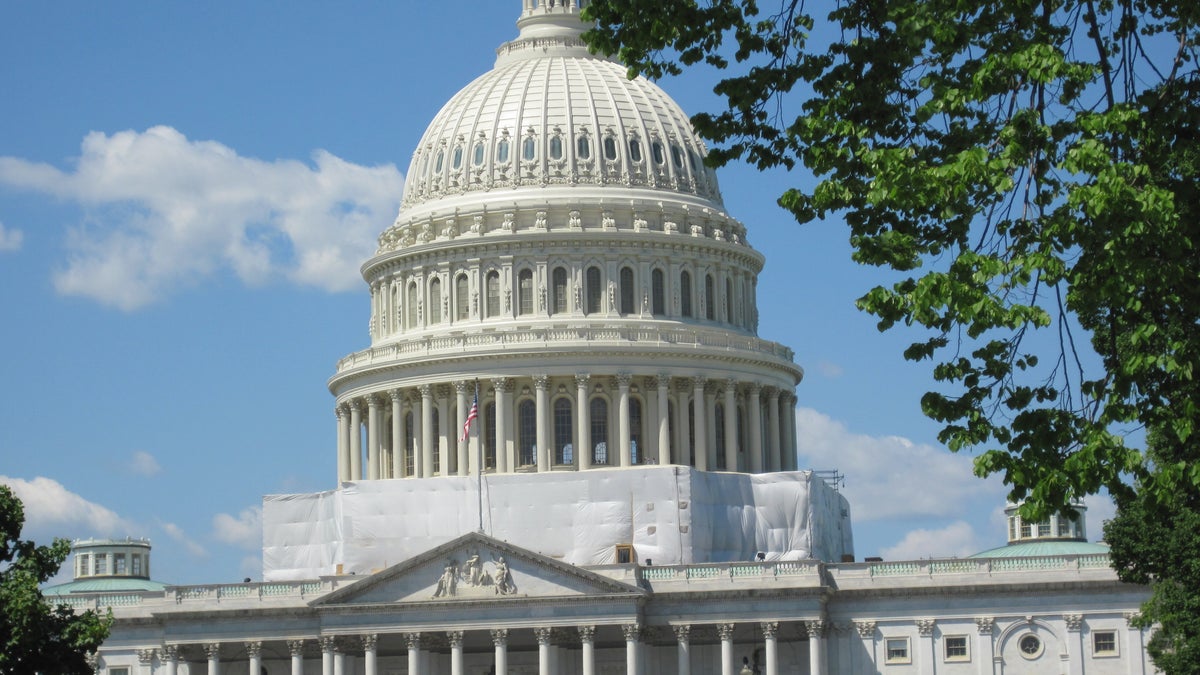Democrats introduce bill to ban 'paid prioritization' on the Net
In attempt to keep Net open to all, bill would require FCC to adopt rule that prevents formation of so-called "Internet fast lane."

Democratic congressional leaders have introduced legislation they say will ensure the Internet stays accessible to all online services and Net users and free of so-called "fast lanes."
The Online Competition and Consumer Choice Act, introduced in both the House of Representatives and the Senate, will require the Federal Communications Commission to ban "paid prioritization" agreements between broadband service providers and content providers.
The goal is to help prevent the creation of a two-tiered Internet system and ensure that startups, entrepreneurs, and consumers all have equal access to the Internet, according to a press release from the two lawmakers who introduced the bill. The legislation was introduced by Sen. Patrick Leahy (D-Vt.), chairman of the Senate Judiciary Committee, and Congresswoman Doris Matsui (D-Calif.), member of the House Energy and Commerce Communications and Technology Subcommittee. Sen. Al Franken (D-Minn.), Congressman Henry Waxman (D-Calif.), and Congresswoman Anna Eshoo (D-Calif.) are original cosponsors.
The bill comes amid a public backlash over proposed rules that the FCC opened to public comment last month. Those rules, drafted by Chairman Tom Wheeler, are meant to reinstate regulations passed by the FCC in 2010 that were supposed to keep the Internet open but were thrown out on a legal technicality by a federal appeals court in January.
One of the most controversial elements of Wheeler's new proposals, which were presented for public comment on May 15, is a provision that would let broadband providers charge content companies such as Amazon or Netflix extra fees for prioritizing their traffic and speeding its delivery to consumers.
Net neutrality supporters say this would create a so-called "fast lane" on the Internet that would inherently slow down service for companies and websites that aren't paying for priority. Ultimately, they claim, this will harm innovation and competition by allowing broadband providers such as Comcast or Verizon to choose winners and losers on the Internet.
"Our country cannot afford 'pay-for-play' schemes that divide our Internet into tiers based on who has the deepest pockets," Congresswoman Matsui said in a statement.
Broadband providers say they're not looking to harm competition or innovation. But companies such as Verizon maintain that imposing strict rules that prohibit paid priority services on the Internet may do more harm than good. Still, the cable industry, in particular, says it hopes to work with the FCC to finalize rules that protect consumers and allow for innovation.
"The cable industry has consistently stated our support for sensible but clear rules which ensure that American consumers continue to enjoy an open and unfettered Internet experience," a representative from the cable industry's lobbyist, NCTA, said in a statement. "Cable companies do not engage in paid prioritization and have every incentive to ensure that all consumers enjoy fast and robust Internet services. We are confident that Chairman Wheeler can restore effective rules under the path that the Court suggested, and we will work with all parties to preserve consumer protections enforced by the FCC and Federal Trade Commission."
The new bill defines "paid prioritization" as the practice of allowing Internet Service Providers (ISPs) to give preferential treatment or priority to the traffic from a content company, such as Netflix or Amazon, which pays for that access. This behavior could include things such as offering faster downloads, prioritized delivery of content, throttling of nonpaying edge providers' traffic, exemption from data caps, or other discriminatory behavior. The Act would also prohibit broadband providers from offering preferential treatment to its own services or services affiliated with its business.
The bill exempts public safety from this requirement and would continue to oblige broadband providers to address the needs of emergency communications and public safety that is consistent with regulation under the FCC's 2010 Open Internet Order. The bill also upholds the FCC's authority to regulate the Internet in such a manner. And it also provides authority to enforce these regulations through the Communications Act of 1934.
This isn't the first time Congress has tried to pass legislation to protect the open Internet. There have been several attempts over the past decade, but they've all failed.
After years of intense debate among Washington, DC, policy wonks, the issue has caught the attention of the general public, with comedians like HBO's John Oliver stirring such intense support for Net neutrality that following a lengthy bit on his show a few weeks ago, concerned citizens temporarily flooded the FCC's website, where it was receiving comments on the Net neutrality proposal.
"Americans are speaking loud and clear," said Sen. Leahy in a statement. "They want an Internet that is a platform for free expression and innovation, where the best ideas and services can reach consumers based on merit rather than based on a financial relationship with a broadband provider."
Even with this wave of public support, Democrats will likely still face strong opposition from Republicans, who are being lobbied by the large phone and cable companies. In May, Rep. Bob Latta (R-Ohio) introduced a bill that would prevent the FCC from reclassifying broadband as something to be regulated like the traditional telephone network. Such reclassification is something cable and telecommunications companies strongly oppose.

